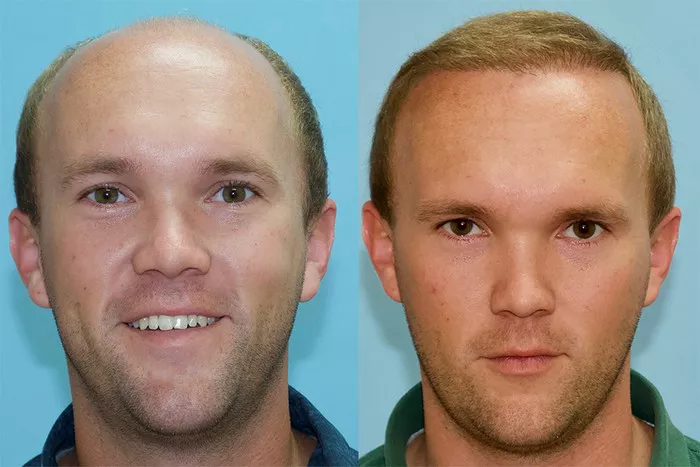Hair loss can be a challenging experience, affecting self-esteem and confidence. For many, hair transplant surgery offers a solution, but the decision of when to undergo this procedure is crucial. The ideal age for a hair transplant varies depending on several factors, including the cause of hair loss, individual circumstances, and long-term expectations. This article explores the various considerations surrounding the appropriate age for a hair transplant, helping you make an informed decision.
Understanding Hair Loss
Types of Hair Loss
Androgenetic Alopecia: The most common cause of hair loss in both men and women, often referred to as male or female pattern baldness. This condition typically begins in the late teens to early twenties.
Alopecia Areata: An autoimmune disorder that can cause sudden hair loss, affecting individuals at any age.
Telogen Effluvium: A temporary hair loss condition often triggered by stress, hormonal changes, or nutritional deficiencies.
The Hair Growth Cycle
Understanding the hair growth cycle is essential. Hair goes through anagen (growth), catagen (transitional), and telogen (resting) phases. Hair loss can disrupt this cycle, making it important to assess the stage of loss before considering a transplant.
Factors to Consider When Determining the Right Age
Genetic Factors
Family history plays a significant role in hair loss patterns. If you have relatives who experienced early hair loss, you may be more susceptible.
Extent of Hair Loss
Assessing the extent of hair loss is crucial. Individuals with mild thinning may be advised to wait until their loss stabilizes, while those with significant bald patches might be candidates for a transplant earlier.
Stability of Hair Loss
It is important to ensure that hair loss has stabilized before undergoing a transplant. Many surgeons recommend waiting until the age of 25, as hair loss patterns are more predictable by this age.
Overall Health and Lifestyle
A person’s overall health, lifestyle choices, and medical history can impact the effectiveness of a hair transplant. Individuals should be in good health, with no underlying medical conditions that could complicate the procedure.
Psychological Readiness
Consider the emotional and psychological aspects of undergoing a hair transplant. It’s essential to be mentally prepared for the procedure and its aftermath.
Recommended Age Ranges for Hair Transplants
Teens to Early Twenties (18-25)
While some individuals may experience hair loss in their late teens, surgeons often advise waiting until the mid-twenties. This allows for a better understanding of hair loss patterns and more predictable outcomes.
Mid-Twenties to Early Thirties (25-35)
This age range is often considered ideal for many candidates. By this time, hair loss patterns have typically stabilized, making it easier for surgeons to design a natural hairline and ensure long-term success.
Late Thirties and Beyond (35+)
Many individuals in this age group are also excellent candidates for hair transplants. They may have experienced significant hair loss but still have sufficient donor hair. Additionally, older candidates may appreciate the aesthetic benefits of restoring their hair.
Risks and Considerations by Age
Younger Candidates (18-25)
Risks: Younger candidates may face the risk of continued hair loss after the transplant, which can lead to an unnatural appearance.
Consideration: Hair transplant surgeons may recommend non-surgical options, such as medications or lifestyle changes, before committing to a transplant.
Mid-Aged Candidates (25-35)
Benefits: This group often has the best balance of hair loss predictability and sufficient donor hair.
Consideration: It’s essential to discuss long-term plans for hair restoration, including potential future transplants.
Older Candidates (35+)
Benefits: Older individuals may have more experience with hair loss and clearer expectations for the results.
Consideration: Health conditions associated with aging should be assessed before proceeding with a transplant.
Post-Transplant Considerations
Age and Healing Process
Younger individuals may heal faster than older patients, affecting recovery times and outcomes. However, the quality of care and adherence to post-operative instructions is crucial for everyone.
Long-Term Maintenance
Regardless of age, maintaining the results of a hair transplant involves ongoing care, including medications, lifestyle adjustments, and regular check-ups with a specialist.
Conclusion
Determining the right age for a hair transplant is a multifaceted decision that requires careful consideration of personal circumstances, health status, and hair loss patterns. While individuals in their mid-twenties to early thirties are often ideal candidates, those older or younger may still benefit from a transplant with the right planning and management. Ultimately, the decision should be made in consultation with a qualified hair restoration specialist who can provide personalized advice and ensure the best possible outcome.
Related topics:
- Natural Ways to Regrow Edges: A Comprehensive Guide
- Concealing Hair Transplant Scars: Effective Strategies
- Do People Regret Hair Transplants? Unpacking the Truth


